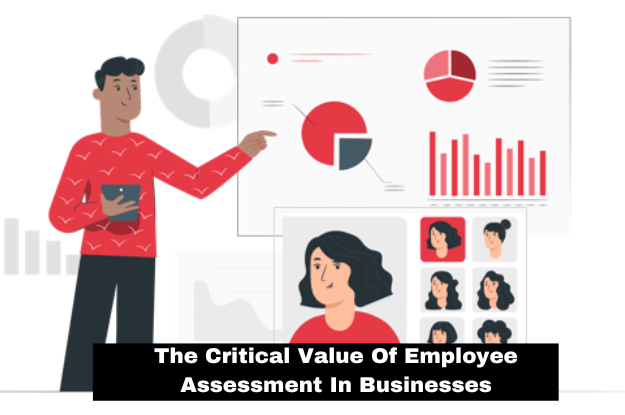Employee assessment refers to practices that help HR measure employee performance over a predetermined period of time. This rating further helps them in making decisions. Employee Performance and value proposition is the valuable asset that keeps an organization running. But tracking their improvement and their achievements during their tenure can become a massive task.

Employee assessment tests are conducted on job applicants, acting employees, and organizational leaders. Their goal is to help candidates learn about themselves and apply the knowledge gained to improve job performance. While appraisals or assessments may be considered a once-a-year activity, more and more companies are now moving to the practice of providing more frequent feedback to employees. This helps employees to regularly evaluate themselves and their own performance while constantly working on their weaknesses and improving their strengths.
According to IBM, organizations that have the best employee experience have nearly three times the return on assets and double the return on sales compared to others. HR and the manager can plan the career path of the employees using assessment and evaluation procedures. These assessments serve as building blocks for HR metrics that can form the basis of annual assessments. It's also a great way to provide performance feedback to employees. Employee retention rates increase with better employee loyalty.
What is Employee Value Proposition (EVP)?
How to conduct employee assessment
The overall goal of employee assessment is to improve the work culture of the organization. It not only helps in individual performance analysis but also helps to strive an accomplishment. Employee assessment works on a micro and macro level. There are several procedures to follow when conducting employee tests:
1. Setting performance standards
It is important that there is no problem in the development of employees. Keeping in mind the standards set should be practical and achievable at all levels. You need to make a checklist to help you keep track of all the things you want to discuss. Once done, be sure to further discuss with your employees what the organization needs to focus on so that employees can also increase their performance by exposing them to the right tools.
2. Set KPIs for assessment
Goals are created after considering the combination of strengths and weaknesses of the employee. These goals are translated into key performance indicators that are specific to each employee. As HR you need to point out all the goals and objectives of the organization They help in individual performance analysis. It will not only help them increase their productivity but also help them build their confidence.
3. Focus on growth
The main goal of employee evaluation is to help employees grow. Help them identify their strengths and weaknesses and allow them to fill the gap so they can focus on their learning. This not only helps in individual growth but also helps in the organization.
4. Be honest with your employees
Employees must understand the primary purpose of the evaluation and the outcome both parties want to achieve. HR should make sure that all levels of employee appraisals are judged solely on employee performance against KPIs and general behavioral parameters set for everyone in the organization. It will help employees increase their productivity with appropriate insight. This will make employees aware of the skills gap. And help them out how it can be bridged with the right training and a positive attitude.
5. Provide appropriate feedback and rewards
Be direct and honest in your feedback and point out the exact problems. Why should employees work on their weaknesses and strive for continuous improvement? Another good way to measure performance is to compare two subsequent evaluations and see if the employee met the goals. Recognize and reward your employees during and after the appraisal.
6. Discuss the employee's future with them
Prioritize what future work you and your staff will do before the session ends. How will it affect the organization as well as the employees and how much of a positive impact will it have? When employees recognize that appraisals aren't just there to tell them how well they're syncing with the organization, but also how well the organization is syncing with them and their career path, it will reduce attrition and improve retention.
How does Leadership Affect Employee Engagement?
Employee assessment is important because it significantly improves employee performance and productivity. not only will they help you find out the reason for this non-performance, but they will also help you solve it.
Appraisal of your employees has become an essential part of the organization. Based on the assessment data, you will be able to focus more on the skills gap that is bothering your employees and help them develop in their areas of interest. This leads to employee satisfaction. Which will ultimately help the organization reduce turnover rates and increase engagement in the long run.
For Human Resource, Payroll, and many more HR Services, visit our website https://lingueeglobal.com/



